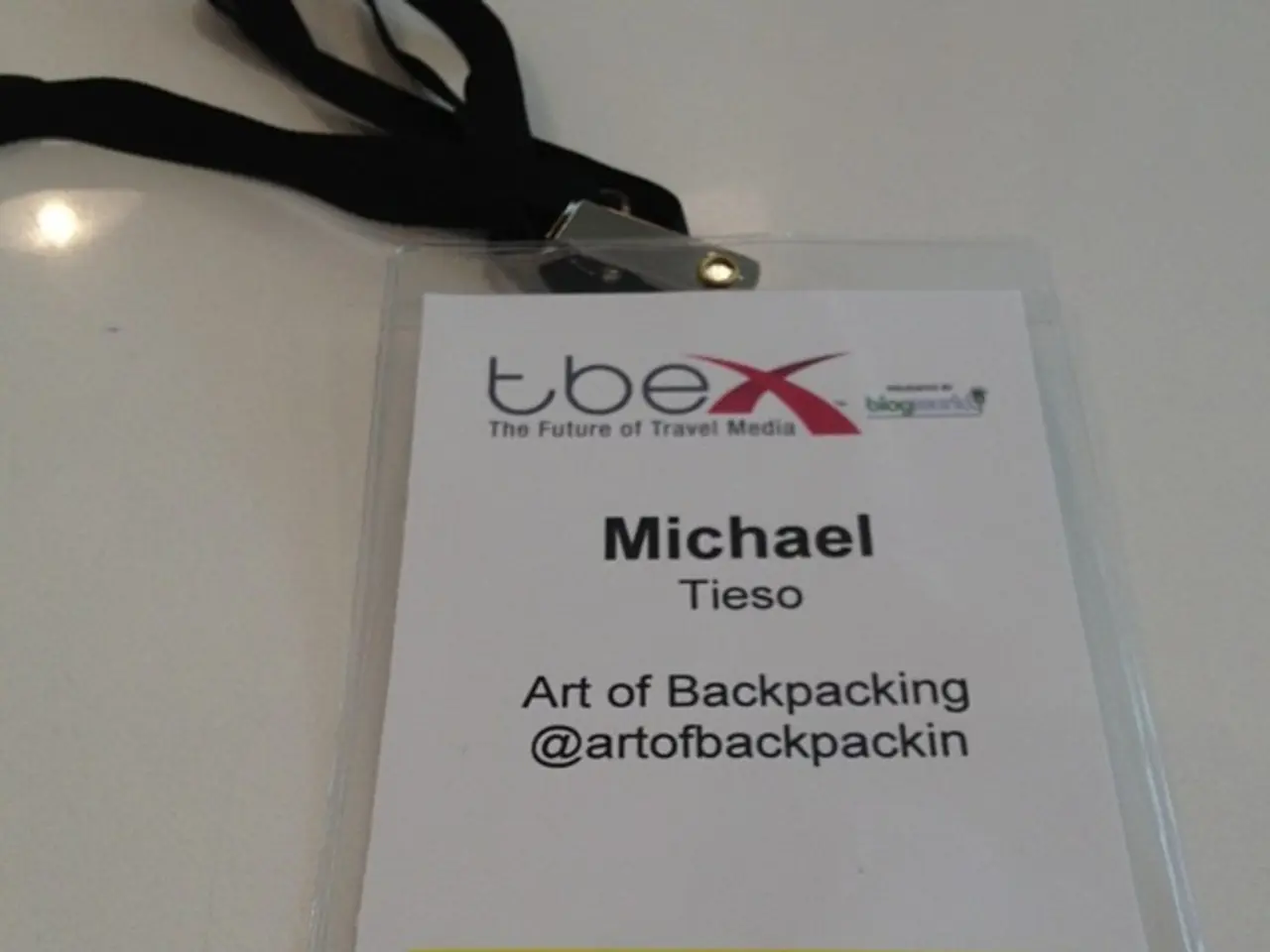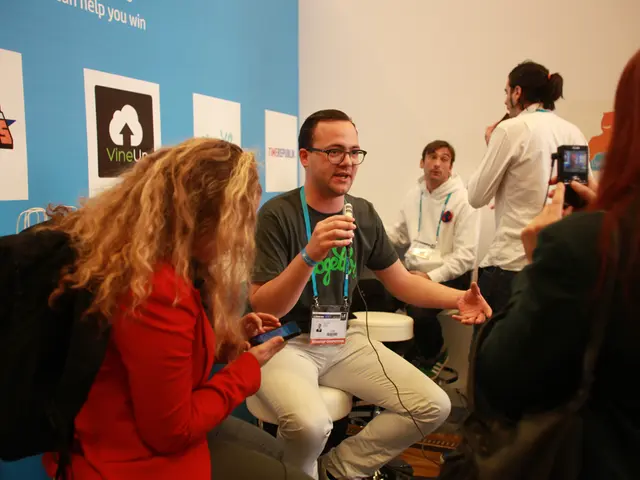Online Freelancers in Africa Enhance Their Digital Footprint
In the dynamic world of freelancing, African professionals are leveraging AI tools to boost their skills, online presence, and income. By adopting a strategic approach, these freelancers are standing out in competitive markets and unlocking new opportunities.
Communication tools like those that create personalized client messages are helping to improve the overall client experience, increasing the chances of securing projects. Automated project management templates, on the other hand, keep deadlines on track, helping freelancers manage their work efficiently.
One notable success story belongs to Sarah Okonjo, a digital marketing expert from Lagos, Nigeria. By focusing her portfolio exclusively on SaaS content marketing, enhancing her profile with relevant keywords and professional certifications, and adding detailed case studies that highlighted clear, measurable client results, she was able to boost her average project fee from $200 to $1,500 and secure $5,200 in monthly recurring contracts within three months.
James Mutua, a full-stack developer based in Nairobi, Kenya, also experienced significant growth. He increased his LinkedIn following from 300 to 2,500 in just four months and improved his project win rate from 20% to 55% by building a GitHub portfolio showcasing five open-source projects, sharing weekly LinkedIn posts about coding challenges and solutions, creating short video tutorials to explain coding techniques, and using social media to expand his professional reach.
AI tools are also providing insights into market trends, helping freelancers identify their best work, adjust pricing, and refine their pitches based on data-driven insights.
To build their online presence, African freelancers can effectively leverage platforms like freelance marketplaces (e.g., Upwork and Fiverr), professional networking sites (e.g., LinkedIn), and social media platforms (e.g., Instagram and Twitter).
A key approach for African freelancers looking to improve their skills and online presence is to join focused AI training programs. For instance, the AI Literacy Academy in Nigeria provides a 30-day hands-on curriculum delivering job-ready AI skills for under $50. Similarly, Evolve HQ offers a 4-week virtual Artificial Intelligence Automation course tailored for African entrepreneurs and freelancers. These programs bridge the gap between theoretical knowledge and practical business applications.
Freelancers can also start with beginner-friendly, no-code AI tools that require no developer experience. Platforms like Coursera, Meta Blueprint, and YouTube tutorials are accessible resources for skill building. Practicing these tools helps freelancers automate repetitive tasks, improve client communication, and manage marketing more efficiently.
Using AI-powered customer relationship management (CRM) systems, content creation tools, and data analytics allows freelancers to engage clients better and scale operations. Studies show that youth who use generative AI for content creation, business modeling, and idea testing gain a competitive edge in entrepreneurship and employment.
Innovation hubs and funding initiatives in countries like Botswana offer incubation, funding, and support tailored to digital adoption, which freelancers can leverage to obtain training and AI tools.
Adopting a gradual, strategic approach is also crucial. Starting with one or two AI tools to automate core functions and gauging their impact on efficiency and client engagement helps freelancers optimize workflows without overwhelm.
Regularly updating portfolios and embracing new digital tools is essential for African freelancers to stay competitive in the global freelance market. To overcome challenges like limited internet access, they can schedule work during off-peak hours when connectivity is more stable, use co-working spaces with reliable internet, and focus on niche markets where competition is lower.
Online platforms offer tailored training programs specifically designed for freelancers in Africa, featuring flexible payment options, region-focused courses, and collaborations with industry leaders. Participants can earn certifications in areas like data analytics, cloud computing, and software development.
In summary, African freelancers can enhance their skill sets and online presence by enrolling in affordable, practical AI training programs designed for their contexts, adopting accessible no-code AI tools, leveraging AI for marketing and client management, and utilizing local support systems for funding and incubation. This approach enables them to stand out in competitive markets and unlock new income opportunities.
- By enrolling in affordable AI training programs like the AI Literacy Academy in Nigeria or Evolve HQ's Artificial Intelligence Automation course, African freelancers can improve their skills and online presence in the finance, business, and technology sectors.
- To boost their earnings and secure more projects, freelancers can leverage AI tools for content creation, customer relationship management, and data analytics, and refine their pitches based on data-driven insights, as demonstrated by Sarah Okonjo's success in the education-and-self-development field.




